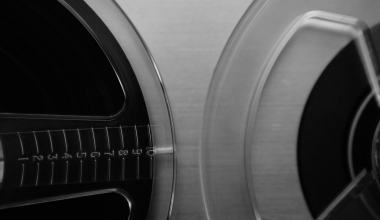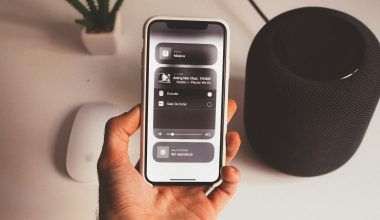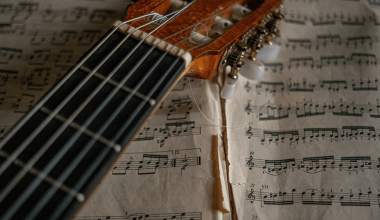Imagine playing a guitar with broken strings or a keyboard full of dust. Sounds frustrating, right? Your musical instrument is like your best friend in your musical journey. It needs love and care to sound perfect and last long. Proper maintenance of your instrument ensures it stays in great condition, so you can focus on creating beautiful music.(popular music instrument maintenance)
In this guide, we’ll explain everything about popular music instrument maintenance in the simplest way possible. Let’s get started!
Chapter 1: Why Is Maintenance So Important?
Your instrument works hard to make you sound great. Without care, it can wear out, lose its charm, and even stop working. Regular maintenance helps:
- Make it sound better: Clean and tuned instruments produce clear and beautiful sounds.
- Save money: Proper care prevents costly repairs or replacements.
- Keep it looking good: Nobody likes a rusty guitar or a dusty keyboard.
Whether you play for fun or professionally, maintaining your instrument keeps your music journey smooth and enjoyable.
Chapter 2: Taking Care of String Instruments
Do you play the guitar, violin, or ukulele? String instruments are delicate and need regular attention.
Daily Care for Guitars and Violins
- Wipe the strings: After playing, use a soft cloth to clean your strings. This removes sweat and dirt.
- Check the tuning: Always make sure your instrument is in tune before playing.
- Store safely: Keep your guitar or violin in a case to protect it from dust and scratches.
When to Change Strings?
Strings lose their brightness over time. Replace them when:
- They sound dull or feel stiff.
- They break or show signs of rust. For regular players, changing strings every 2-3 months is a good idea.
Protecting from Humidity
String instruments, especially wooden ones, can crack or warp in dry air. Use a humidifier in your case to keep the air balanced.
Chapter 3: Keeping Pianos and Keyboards in Shape
If you love playing pianos or keyboards, you know how important it is to have smooth keys and a perfect sound.
Simple Tips for Pianos
- Dust the keys: Use a soft, slightly damp cloth to clean the keys weekly.
- Tune regularly: Acoustic pianos need professional tuning at least twice a year.
- Avoid direct sunlight: Heat can damage the wood and tuning of your piano.
Caring for Keyboards
- Keep it covered: Use a keyboard cover to prevent dust from getting into the keys.
- Check the power supply: Ensure cords and adapters are in good condition.
- Update the software: For digital keyboards, install updates to keep features working.
Chapter 4: Drums and Percussion Maintenance
Drummers, your kit deserves love too! Whether it’s your drum set or tambourine, these instruments need proper care to keep the rhythm alive.
Drum Care
- Inspect the drumheads: If they’re worn out, replace them for a crisper sound.
- Tighten evenly: Adjust the lugs equally to get the best tone.
- Clean the hardware: Use a cloth to wipe pedals and stands, and oil moving parts to prevent squeaks.
Caring for Cymbals
- Wipe regularly: Remove fingerprints and dirt with a soft cloth.
- Polish occasionally: Use a non-abrasive cleaner to maintain their shine.
Chapter 5: Wind Instruments—Clean and Crisp
Flutes, clarinets, and saxophones produce beautiful melodies, but they also need cleaning to stay in tune.
Daily Maintenance
- Clean the mouthpiece: Wash it with warm, soapy water after each use.
- Swab the inside: Use a swab or cleaning cloth to remove moisture.
- Grease the joints: Apply cork grease to make assembly smooth.
Yearly Check-ups
Take your instrument to a professional for deep cleaning and adjustments once a year. This prevents serious issues.
Chapter 6: Electronics Need Care Too
Electric guitars, basses, and electronic drum kits have one thing in common—electronics. Here’s how to keep them in top shape.
Cable and Connection Care
- Always check cables for frays or cuts.
- Clean the input jacks with a contact cleaner to avoid static noises.
Power and Batteries
- Use high-quality power cords and avoid overloading the circuits.
- Replace batteries in pedals or tuners before they run out.
Keep It Clean
Dust can damage electronics. Use compressed air or a soft brush to clean sensitive parts.
Chapter 7: Quick Tips for All Instruments
Here are some golden rules for popular music instrument maintenance:
- Wash your hands before playing to keep oils and dirt off your instrument.
- Never use harsh cleaners like alcohol or bleach—stick to products made for instruments.
- Invest in cases and covers to protect from dust, humidity, and accidents.
- Handle with care: Avoid dropping or placing heavy items on your instrument.
Chapter 8: DIY Maintenance or Professional Help?
It’s great to handle small tasks like cleaning or string replacement yourself. But for:
- Tuning pianos,
- Fixing electronic parts,
- Deep cleaning wind instruments, you should hire a professional.
Chapter 9: Tools You’ll Need for Maintenance
Here’s a checklist of handy tools:
- Microfiber cloths for cleaning.
- String winders for guitars.
- Cork grease for wind instruments.
- Polishes for wood and cymbals.
- Cases and stands for safe storage.
Chapter 10: Building a Routine
Maintenance doesn’t have to be hard if you build a habit. Follow this weekly checklist:
- Wipe: Clean your instrument.
- Inspect: Look for wear and tear.
- Store properly: Keep it in a case or on a stand.
Monthly, spend extra time checking strings, keys, or cables. Plan professional servicing once a year.
Conclusion: Keep the Music Alive
Your instrument is your voice in music. Taking a few minutes every day for popular music instrument maintenance ensures it stays by your side for years. Whether you’re a beginner or a pro, a well-maintained instrument makes playing more enjoyable.
Related Articles:
For further reading, explore these related articles:
- Best Band Merch Ideas to Rock Your Fanbase
- The Ultimate Guide to Music Studio Gear Reviews for Beginners and Pros
For additional resources on music marketing and distribution, visit DMT RECORDS PRIVATE LIMITED.






